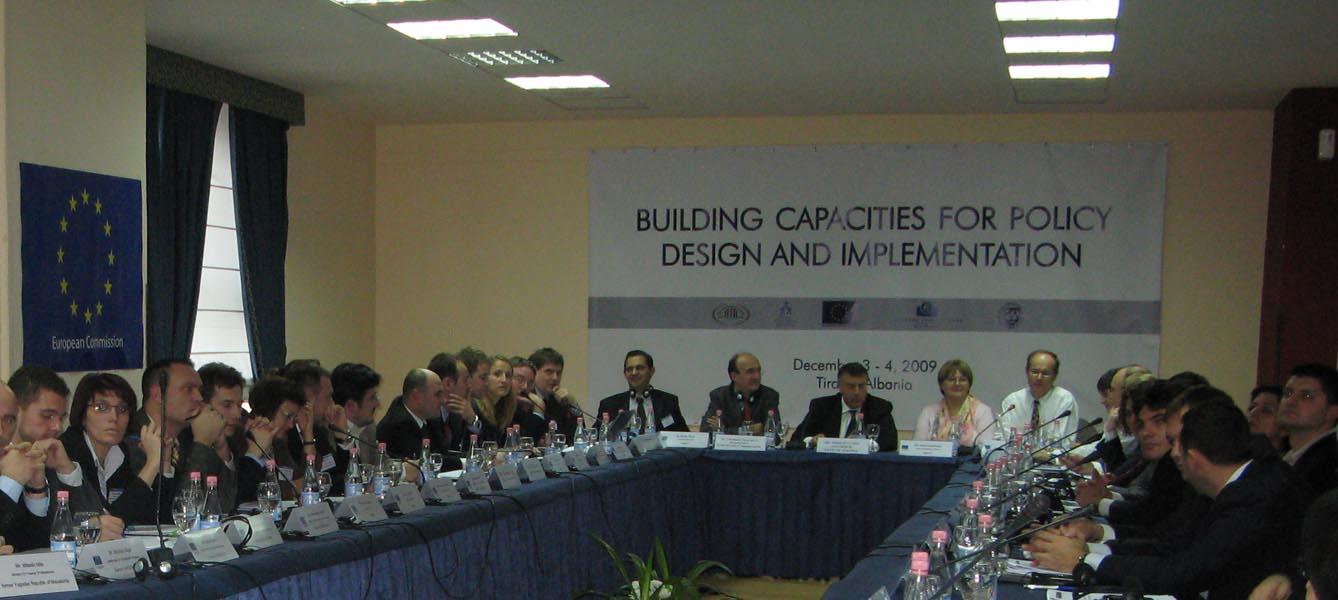BANK OF ALBANIA
PRESS RELEASE
Workshop on "Building Capacities for Policy Design and Implementation"
Publication date: 03.12.2009
On December 3-4, 2009, the Bank of Albania, in cooperation with the Center of Excellence in Finance (CEF) - Slovenia, with support from the European Commission, European Central Bank, and International Monetary Fund, organized the workshop on Building Capacities for Policy Design and Implementation.
This workshop addressed the main challenges associated with policy design and policy anchoring with particular focus on building individual and institutional capacities in this very important area.
The workshop, which took place for the first time in Albania, brought together representatives of central banks and of ministries of finance from Southeast Europe, such as: Bosnia Herzegovina, Bulgaria, Kosovo, Croatia, Montenegro, Macedonia, Moldavia, Rumania, Turkey, Serbia, and Albania. The main lectures were held by representatives from the Center of Excellence in Finance (CEF), the European Commission, the European Central Bank and the International Monetary Fund.
In his opening speech, the Governor of the Bank of Albania, Mr. Ardian Fullani highlighted the importance of appropriate economic policy design to identify the new growth model in the wake of the crisis, with the focus on attraction of foreign capital inflows to the region. He suggested the need for risk-averse fiscal policies and proper structural reforms targeted to improving the business environment, which will help foster new capital inflows and strong and sustainable growth.
While discussing with the participants, the Governor highlighted the need for using the European institutions and integration process as a natural, sound and efficient external anchor in the medium run.According to Governor, the strengthening of external anchors over the medium run is a necessity and the European policies or EU institutions can and should play such a role.
Currently, the EUs fiscal surveillance procedures offer a natural anchor in the longer run for countries in the region, and these procedures need to be built up to provide a deeper and more effective dialogue.
On the other hand, the Lisbon process is very broad-brush in its priorities; yet, more structural diagnosis is needed on the role and aid of the IMF, World Bank and EBRD, to help anchor countries actions to enhance the business environment.
The strengthening of the countries domestic anchors is as much important, signifying sound economic and financial policy design on the one hand, and building of appropriate capacities for their assimilation and implementation on the other hand.


 Linkedin
Linkedin
 Twitter
Twitter
 Youtube
Youtube
 Facebook
Facebook
 Flickr
Flickr
 RSS
RSS
 Subscribe
Subscribe
 Feedback
Feedback